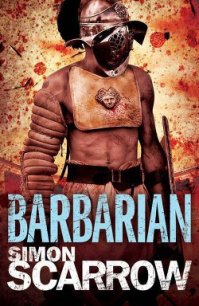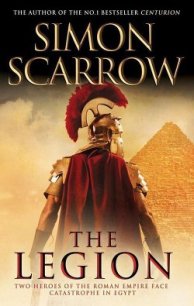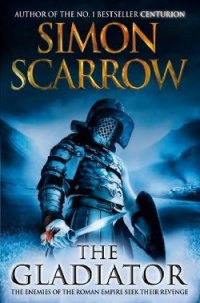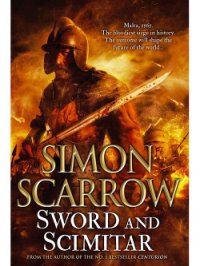The Fields of Death - Scarrow Simon (читаем книги онлайн бесплатно txt) 📗
Towards the end of the first day the bridge was nearly complete and a Portuguese brigade had been landed on the far shore, together with a handful of guns and a rocket battery. Arthur had crossed the river to oversee the establishment of the bridgehead when there was an exchange of musket fire from the road to Bayonne. A moment later a soldier came trotting back to warn that an enemy column was approaching. Colonel Wilson, the commander of the brigade, immediately formed his men up across the road ready to defend the small party of engineers constructing the landing stage on the north bank. The guns and the rockets were in place on a small mound overlooking the river and Arthur gestured to Somerset to follow him and rode up to the two batteries for a better view.
To the east the road snaked between undulating ground, and Arthur could see tiny puffs of smoke as the Portuguese skirmishers exchanged fire with the light infantry advancing in a line in front of the main French column.
‘A division, I should say.’
‘And cavalry, there, towards the rear, sir,’ Somerset said quietly.‘Could cause us some difficulty.’
Arthur looked towards the boat bridge. There was still a gap of a hundred yards between the anchored boats and the river bank. The last of the vessels still had to be edged into position and then the bridge would have to be laid across the decks. It would be at least another three hours before the first troops could march across the Adour. That meant standing and fighting, or giving the order to abandon the bridgehead until a larger force could be landed by boat to drive the French away. If the north bank of the Adour was lost it might take days to retake it. Arthur saw Colonel Wilson glance back at him, and he composed his face and remained still to give Wilson the chance to make the right decision. There was a pause, then Wilson turned back towards the enemy and ordered his men to advance to where the ground was more open and they would have the space to deploy into a line long enough to bring every musket to bear on the approaching enemy.
No more than ten minutes later the Portuguese skirmishers came trotting back down the road and took up their position at the left of the line. From his position Arthur could see the French skirmishers now, steadily advancing across country until they came within range of the Portuguese line. They had little time to harass Wilson’s men before the rest of the French column came up, marching swiftly. The commander of the leading brigade halted his column and began deploying opposite the Portuguese.
‘This should be interesting,’ Somerset commented. ‘Let’s hope our allies can stand their ground alone.’
‘They will,’ Arthur replied firmly.‘They are seasoned men, as good as our own line infantry. Besides, they are not entirely alone.’ He gestured towards the guns and rockets. A moment later the artillery battery fired its first rounds. The range was short, and the ground wet enough to absorb much of the energy as the solid iron balls struck the earth, kicking up wedges of turf before coming to a stop just short of the enemy. The captain in charge of the battery, Mosse, instructed his crews to increase the elevation and the next shots fell on target, carving their way through the French line.
Arthur turned his attention to the rocket battery. Their launch troughs were supported by a simple iron A frame which could be quickly raised or lowered by means of a sliding bolt to change the angle at which they were fired. The crews had loaded the first rockets and now stood back, the sergeants holding the cords that triggered the flintlock firing mechanisms.
Turning back towards the battle lines Arthur saw that the French had made no attempt to advance yet.
‘What are they waiting for?’ asked Somerset.
‘Their cavalry. Once they reach the head of the column I should imagine they will attempt to get round Wilson’s left flank. If that happens, then his brigade will be forced to form square. That’s when their infantry will advance. This could turn to the enemy’s advantage, unless something is done.’ He tugged his reins and walked his mount over to the rocket battery’s commander.
‘Hughes, isn’t it?’
‘Yes, sir.’
‘Your rockets can fire up to two miles, I believe.’
‘That’s right, sir. Of course they will not be accurate at such a range.’
‘They are not accurate at any range,’ Arthur replied tersely. ‘So we should be thankful the enemy are providing us with such a large target. Now then, you see the enemy’s cavalry?’
Lieutenant Hughes glanced to the east and nodded.
‘Then aim for them, if you please. Let us see what your contraptions can achieve.’
The officer grinned and touched the brim of his hat before turning away to order his men to align their launch troughs towards the distant target. When all was ready he gave the order for the first rocket to be launched. The sergeant gave his firing cord a sharp tug, the flintlock snapped shut with a spark and the short fuse sputtered for a few seconds before the charge was ignited. With a harsh, hissing roar the rocket leaped from its trough with a brilliant jet of fire and cloud of smoke. Arthur watched the spiralling path of the rocket as it rose to the top of its arc and then curved down towards the French column. It exploded with a flash and white puff some distance above the enemy. Arthur saw several of the soldiers struck down by shrapnel, while others ducked, forcing the column to stop.
‘Very good!’ Arthur grinned at Hughes. ‘That’s put the wind up them. Kindly continue your good work.’
‘With pleasure, sir.’
The second rocket went wildly astray, over the river where it slammed into the water close to the boat bridge. Hughes looked sheepish before he turned back to supervise the next rocket. He had better fortune with the following two, which burst on the ground, the first into the infantry column, the second right in the middle of the cavalry regiment, striking down at least a dozen and scattering a hundred more as the horses bolted from the unfamiliar weapon. At the same time the artillery battery had continued to punish the French line which still had not moved, and was standing waiting for the cavalry. A distant boom drew Arthur’s attention to the southern bank of the Adour where more allied batteries were positioned. The range was long but the enfilading fire was soon doing great damage as each shot ploughed into the enemy’s left flank.
Somerset was enjoying the spectacle and slapped his thigh with glee each time one of the rockets exploded just above or amongst the enemy. The effect on the enemy’s morale was far in excess of the damage caused and soon the column had been stopped in its tracks as men and horses scattered as each rocket corkscrewed towards them with a shrieking roar.
Arthur reached into his saddle bucket for his telescope and trained it on the disrupted ranks of the French column. He sought out the enemy general and could not help smiling as he saw him shake his fist and shout at his men. Each time he began to reassert control a fresh rocket undid his work and in the end he snatched off his hat and threw it on the ground in frustration. After enduring half an hour of the bombardment he finally gave in and the column turned about and hurried back down the road towards Bayonne. The Portuguese troops could only see the line of men in front of them, and they let out a great cheer as soon as the enemy re-formed their columns and hurried after their comrades.
Arthur lowered his telescope with a satisfied smile. ‘Well, that’s that. I shouldn’t think we’ll have any further difficulty with the bridgehead. You may tell General Hope that his blockade of Bayonne can begin the moment his corps completes the encirclement of the city.’
‘Yes, sir.’
‘As for us, we’ll re-join Hill.’ Arthur’s smile faded as he considered the next phase of the campaign. ‘Then it’s back to hard marching. This time, we’ll run Soult down and defeat him once and for all. With the south of France in our hands and the north falling to the allies then our friend Bonaparte will be caught in the middle. Let us hope the man has the sense to admit defeat.’ Arthur stared at the French bodies littering the road to Bayonne and continued quietly, ‘By God, Somerset, I want nothing more than to see the end of the slaughter that has been carried out in his name.’




